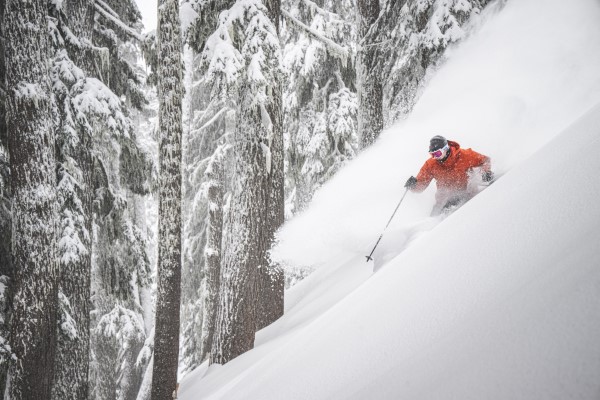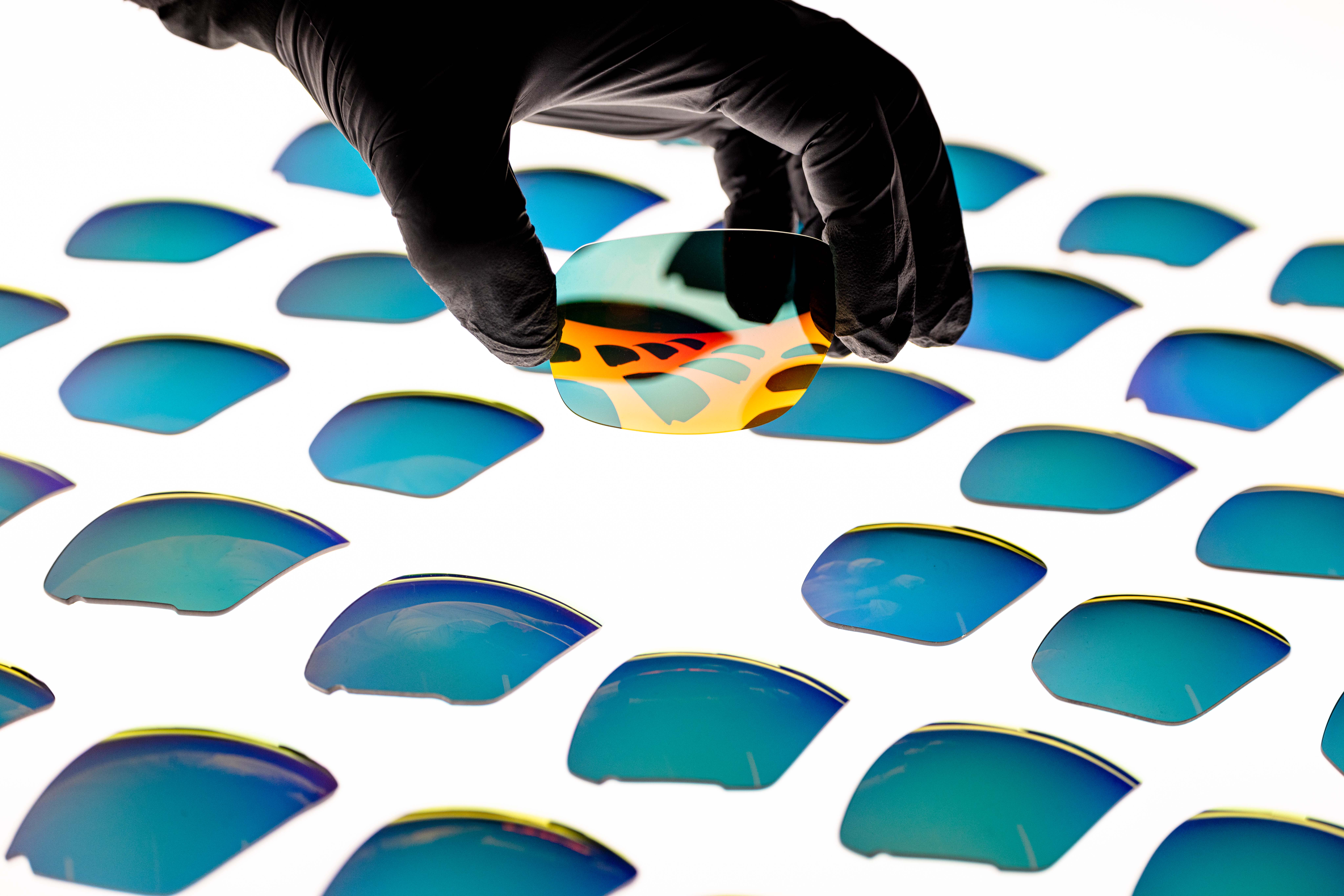As a cash-strapped student at the University of Oregon, Jason Bolt found himself burning through high-end sunglasses — essential eye protection for a dedicated backcountry cyclist — at an alarming rate. The conundrum roused his inner entrepreneur. Since sunglass lenses are easy to pop out and pop back in, what if there were a way to simply replace the ones he kept mangling, rather than to keep shelling out for new Oakleys?
It’s the idea behind Revant Optics, which Bolt founded in 2010 and recently expanded to accommodate the demand for replacement lenses from devotees of brands like Oakley, Ray-Ban, Costa, Prada and many more. Bolt says his clients, who can order on demand and to exacting specifications, can save up to 90% over buying brand new. He says there’s no better place than Oregon to run his business.
“At its best,” he says, “Oregon is known for its creativity, passion for the outdoors and sustainability — with a tech component mixed in. It’s the crossroads of all the things Revant falls into.”
Oregon’s position as the nation’s epicenter for outdoor gear and apparel is well established. Few brands are as closely identified with their prime location as the footwear and apparel giant Nike. The sartorial patron saint of University of Oregon athletics, Nike employs close to 14,000 people at its Portland headquarters. Columbia Sportswear and adidas North America are headquartered in Portland as well. Around those towering brands has sprung up a highly specialized business landscape driven by homegrown talent.
“When you’re talking about the entrepreneurial ecosystem in Portland,” says Sucheta Bal, athletic and outdoor industry liaison for Prosper Portland, the city’s economic development agency, “you’re talking about a lot of people that cut their chops at one of the Big Three — at Columbia, adidas and Nike — learned the ropes and then started a product company.”
On the Cutting Edge of Innovation
Over the past decade, Outdoor Gear & Apparel has been Oregon’s fastest growing target industry group. Relying on recent surveys, Business Oregon identified 557 companies involved in the sector in an analysis published in 2023. Those businesses, the report found, accounted for more than 25,500 jobs at a median wage of $70,000 a year, significantly higher than the statewide average.
“There are the big names in the apparel and footwear space,” states the report, “but there are many other companies in the outdoor product sector making gear for cycling, skiing, camping, shooting, climbing, fishing, boating and many more.”
Small and medium-sized businesses like Revant, which employs 47 people, are driving innovation. Utilizing advanced manufacturing processes, Revant can produce up to 2,000 pairs of replacement lenses in myriad shapes and tints each day. And it’s poised to unveil a feature that will allow customers to locate their misplaced sunglasses through a web app, forward thinking for a company that relies on people not to lose them.
“I’ve personally had that issue my entire life,” he says.
Like Bolt, who launched his company in response to a personal need, Michael Markesbery founded OROS Labs because he’d wearied of climbing snowy mountains wrapped in so much thermal gear that “I looked like the Michelin man.” Through a NASA scholarship, Markesbery learned about aerogel, used to insulate astronauts and equipment in the frigid climes of space. He and a partner “were able to get our hands on it” and adapt it for use in apparel. In 2019, they moved their nascent company to Portland from a college dorm in Ohio.
“We did a nationwide search, and it became really clear that Portland was the right decision. There was a wealth of talent and amazing access to the outdoors,” Markesbery says.
vWhile OROS started as a direct-to-consumer outerwear company producing cozy, lightweight jackets, Markesbery discerned a massive opportunity for his “Solarcore” technology in sectors including aerospace, defense, construction and pharmaceuticals.
“Half of the world’s energy consumption — trillions of dollars a year — goes to producing heat, and the largest consumer of that is homes and buildings,” he says. “So, if you can improve the insulation behind these walls by a couple of percentage points, you can save hundreds of billions of dollars of energy consumption a year.”
In April, OROS announced the closure of a Series B funding round, raising $22 million to support its expansion into consumer, commercial and government industries. The investment, Markesbery says, “opens doors for us to pursue strategic partnerships, bolster our manufacturing capabilities, scale our product offerings and advance our research and development efforts to continue introducing groundbreaking materials to the market.”
 OROS Labs began as a maker of lightweight thermal wear.
OROS Labs began as a maker of lightweight thermal wear.
Photo courtesy of OROS Labs
Bringing it All Back Home
Like OROS, Portland-based Hilos — which debuted in 2019 as a women’s footwear label — has evolved beyond its initial mission into something far more ambitious. The company’s aim, says founder and CEO Elias Stahl, is to “reinvent footwear manufacturing so that we can make it locally and without waste.”
Hilos developed a platform that blends deep technology with traditional footwear craft and sells it to brands and independent designers, allowing them to make 3D-printed shoes on demand.
“We’re essentially building a completely new supply chain for an industry that’s very important to Portland and the state of Oregon,”
— Elias Stahl, CEO, Hilos
“We’re essentially building a completely new supply chain for an industry that’s very important to Portland and the state of Oregon,” Stahl says. “And we’re doing it in a way that brings manufacturing back to Oregon and advances a more sustainable future for the entire footwear industry.”
With hometown backing, Hilos is leading the charge to revitalize a dozen buildings spanning several city blocks, with the goal of creating a green manufacturing campus for shoes and apparel. In March, the Portland municipal government approved initial funding for the $125 million development project called Made in Old Town, which Stahl envisions as a mecca for jobs, innovation and onshoring.
The inspiration, he says, came from contacts he developed through the Northwest Materials Show, a marquee event in the outdoor and athletics industry that brings hundreds of vendors from around the world to Portland twice yearly.
“We heard time and time again,” he says, that visiting vendors needed a full-time presence in Portland. “And meanwhile, outside our door we were seeing beautiful, old brick manufacturing buildings going back to the bank. So, we saw an opportunity to work with the community and work with our neighbors to bring manufacturing back to this part of the city and do it around outdoor and apparel.
“There’s no larger center of gravity for footwear and apparel design, development and innovation than Portland,” Stahl believes. “And there is no better place to very quickly collaborate within the industry and develop new innovative applications for its future.”

